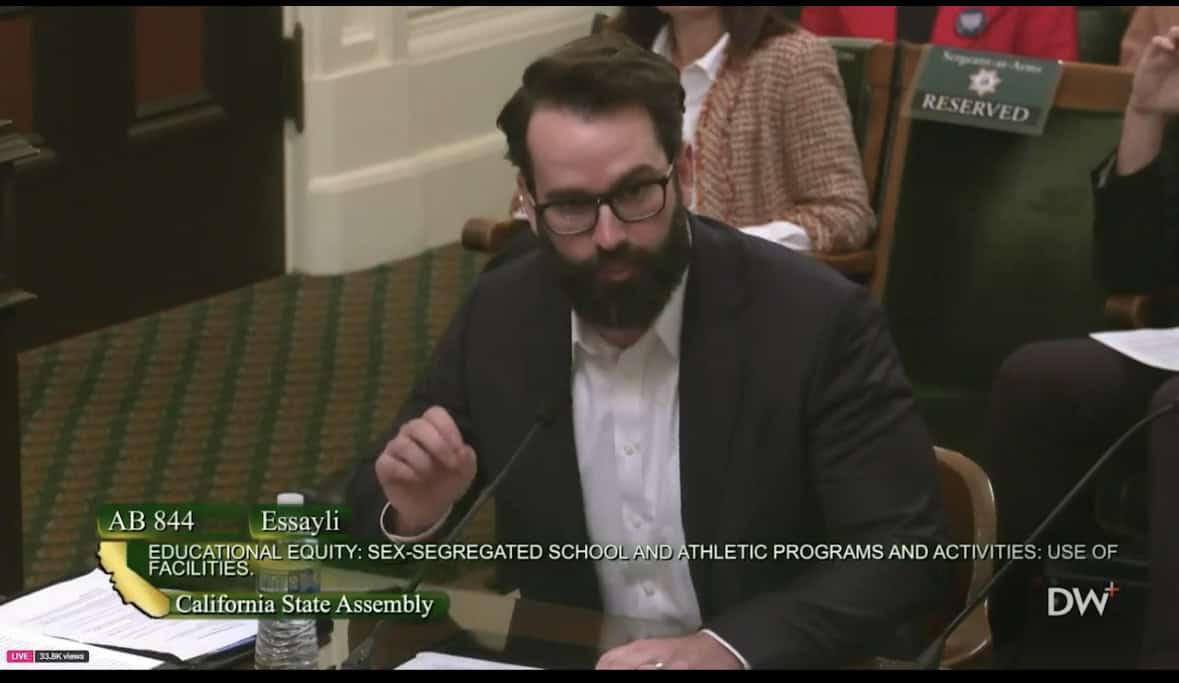Alabama Joins States Protecting Kids from Transgender Surgery, Puberty Blockers

Little more than a week since the U.S. Department of Justice warned states like Arkansas, Texas, and Arizona that protecting minors from harmful gender reassignment surgery could bring federal retaliation, the Alabama legislature spoke loudly that it intends to protect children from harm.
Senate Bill 184 (SB 184), passed by the Alabama Senate in a vote of 24-6 and the House by a vote of 66-28, recognizes the research that the substantial majority of minors “experiencing discordance between their sex and their sense of identity” will outgrow it by the end of puberty and their discordance will be resolved in favor of an identity that aligns with their sex.
In other words, the kids will grow out of it, so don’t let them destroy their lives.
Based on that scientific knowledge, the legislature concluded, as did the Arkansas legislature last year, the Texas Attorney General earlier this year and the Arizona legislature most recently, that allowing experimental medical interventions on minors such as administering puberty blockers or performing gender reassignment surgery is harmful, cannot, in most instances, be reversed, and can result in permanent sterility.
And because minors cannot lawfully give legal consent and can be unduly influenced by peers and advisors with an agenda, SB 184 was passed to protect them.
The law accomplishes the following:
- Makes it a felony to prescribe or administer puberty-blocking drugs to minors under 19 (the age of consent in Alabama), or to perform gender reassignment surgeries on them.
- Prohibits school officials from withholding information from parents, or counseling or coercing minors to keep their identity struggles secret from their parents.
The Alabama legislature passed SB 184 despite a letter issued by the U.S. Department of Justice on March 31 warning states not to take such actions.
“Intentionally erecting discriminatory barriers to prevent individuals from receiving gender-affirming care implicates a number of federal legal guarantees,” Kristen Clarke, Assistant U.S. Attorney General wrote.
“State laws and policies that prevent parents or guardians from following the advice of a healthcare professional regarding what may be medically necessary or otherwise appropriate care for transgender minors may infringe on rights protected by both the Equal Protection and the Due Process Clauses of the Fourteenth Amendment.”
But these days what serves as “advice” from “healthcare professionals” usually amounts to nothing more than encouraging confused kids to follow through with their delusions that life- and body-altering drugs and procedures will resolve their identity struggles. Adults should know better, but kids certainly don’t recognize the heartbreak they are setting themselves up for.
The federal push toward allowing minors to make catastrophic and life-changing decisions they will later regret flies in the face of a counter trend appearing across Europe.
In places such as the United Kingdom, Sweden, Finland, and now France, medical authorities are strongly urging caution and taking a step back from the current practice of encouraging minors to engage in drastic medical intervention as a “fix” for their identity issues.
The French National Academy of Medicine, for example, now says the “epidemic” we’re seeing in minors seeking gender reassignment medical treatment may be caused by social factors.
Whatever the mechanisms involved in adolescents — excessive engagement with social media, greater social acceptability, or influence by those in one’s social circle — this epidemic-like phenomenon manifests itself in the emergence of cases or even clusters of cases in the adolescents’ immediate surroundings. This primarily social problem is due, in part, to the questioning of an overly dichotomous view of gender identity by some young people. Whatever the mechanisms involved in adolescents — excessive engagement with social media, greater social acceptability, or influence by those in one’s social circle — this epidemic-like phenomenon manifests itself in the emergence of cases or even clusters of cases in the adolescents’ immediate surroundings. This primarily social problem is due, in part, to the questioning of an overly dichotomous view of gender identity by some young people.
Hopefully, we’ll see more states protecting children like Alabama, Arkansas, Arizona and Texas have done. It’s a shame the federal government is encouraging this type of bad medicine, and threatening states who want to protect minors.
Incidentally, Alabama also passed a parental rights bill, similar to Florida’s, that bans teaching about sexual orientation and gender identity in grades K-5. Kudos to the legislators in The Cotton State for stepping up on behalf of children and their families.
Related:
State Legislation Would Protect Gender-Confused Children – Here’s How You Can Help
‘Transgender’ Dogma Stifles Dissent
Four Must-Read Books for Culturally Aware Christians
Planned Parenthood Finds Another Group to Harm – People Struggling with Sexual Identity Confusion
Photo from Shutterstock.
ABOUT THE AUTHOR

Bruce Hausknecht, J.D., is an attorney who serves as Focus on the Family’s judicial analyst. He is responsible for research and analysis of legal and judicial issues related to Christians and the institution of the family, including First Amendment freedom of religion and free speech issues, judicial activism, marriage, homosexuality and pro-life matters. He also tracks legislation and laws affecting these issues. Prior to joining Focus in 2004, Hausknecht practiced law for 17 years in construction litigation and as an associate general counsel for a large ministry in Virginia. He was also an associate pastor at a church in Colorado Springs for seven years, primarily in worship music ministry. Hausknecht has provided legal analysis and commentary for top media outlets including CNN, ABC News, NBC News, CBS Radio, The New York Times, the Chicago Tribune, The Washington Post, The Washington Times, the Associated Press, the Los Angeles Times, The Wall Street Journal, the Boston Globe and BBC radio. He’s also a regular contributor to The Daily Citizen. He earned a bachelor’s degree in history from the University of Illinois and his J.D. from Northwestern University School of Law. Hausknecht has been married since 1981 and has three adult children, as well as three adorable grandkids. In his free time, Hausknecht loves getting creative with his camera and capturing stunning photographs of his adopted state of Colorado.
Related Posts

‘Land of Lincoln’ Looks to Bully Homeschool Families
April 3, 2025

Matt Walsh and a Call to Wake Up a Weary World
April 2, 2025

Stop Lying to Women
April 2, 2025

